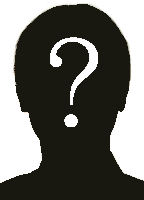Clipping Board » Recommended Books & Websites ─ Book, newspaper, and magazine websites, any type is acceptable, even those not recommended.

 Liao Yuqun authored
Liao Yuqun authored
Published by Dongda on 2003/8/1
"Medicine is Intuition" (Not Highly Recommended)


Published by Dongda on 2003/8/1
The author is not a clinical practitioner of traditional Chinese medicine, and there are many misunderstandings of classic Chinese medical texts in the book. Here are three particularly egregious examples:
- p118 Misinterprets "食氣入胃,散精於肝" from Suwen‧Jingmai Bielun as "inhaling gas," and even cites classical texts. It's important to note that the same phrases in ancient Chinese texts can have different meanings depending on the book and the dynasty. Anyone who has studied the basic theories of Chinese medicine knows that the "stomach" in Chinese medicine primarily "receives and digests food and water," and the concept of "氣" (qi) is broad and not specifically referring to air. Its meaning depends on the context. "食氣入胃" naturally refers to the qi of food and drink, which can then "散精於肝" (spread essence to the liver). This is why the text immediately follows with "飲入於胃" (drink enters the stomach), explaining "食" (food) first and "飲" (drink) next, indicating different pathways in the body.
- p119 Misinterprets "生氣之原" from Nanjing‧The Eighth Difficulty as "perception of the pulsation of the abdominal aorta." Those familiar with the basic theories of Chinese medicine know that the "原氣" (original qi) in the Nanjing originates from the "命門" (life gate), as stated in 36, 39 difficulties: "The life gate is where all the spirits and essence reside, and the original qi is connected. In men, it stores essence; in women, it connects to the womb," "its qi communicates with the kidneys," and so on. Many later physicians have understood, developed, and applied this concept, showing that the life gate and original qi are related to growth, development, reproduction, basal metabolism, and other so-called "innate" functions, particularly the adrenal glands, and definitely not "the pulsation of the abdominal aorta." This could be elaborated further, but let's stop here...
- p222 Claims that "Chinese medicine for thousands of years did not even know that the heart beats" and "the starting point of the twelve meridians is in the stomach"... This is the most absurd: First, meridians ≠ cardiovascular system; second, were our ancestors really so foolish as to not know that the heart beats? Then what about the "心動悸" (palpitations) mentioned in the Song edition of Shanghan Lun‧Article 177: "In cases of cold damage with intermittent pulse and palpitations, Zhigancao Decoction is prescribed."? Third, the circulation of the twelve meridians is clearly mentioned in Lingshu‧Jingmai, where the first meridian (Lung Hand Taiyin) "starts from the middle burner," not the stomach. The middle burner and the stomach are distinctly different.
Shen Yaozi said, "The sun bakes the earth, dissipating all things."

